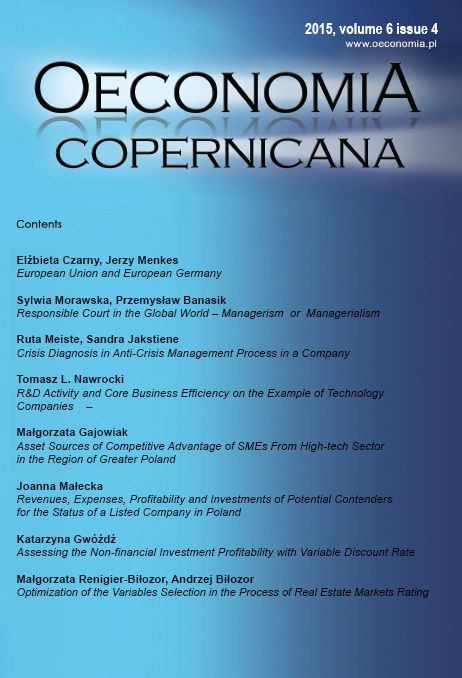European Union and European Germany
European Union and European Germany
Author(s): Elżbieta Czarny, Jerzy MenkesSubject(s): Politics / Political Sciences, Politics, Economy, National Economy, Supranational / Global Economy, EU-Accession / EU-DEvelopment
Published by: Instytut Badań Gospodarczych
Keywords: European Union; Germany; euro zone; German unification
Summary/Abstract: We analyze the correlation between the European integration and incorporating Germany into the process of European cooperation. We point out that the European integration after WWII was determined by the creation of the European Coal and Steel Community in the year 1951. This Community made it possible to control the steel industry of the Member States (among them Germany) within the framework of the common market. It was aimed at stable and harmonized devel-opment, as well as at preventing an uncontrolled growth of military-industrial complex, increasing the production for the army and decreasing the probability of the outbreak of the next war. Then - after the deepening of cooperation (taking her new areas) – the European Communities (EC) were created. They are still institutional foundations of the EU. One of the main reasons of the EC creation was the willingness to ensure lasting peace in Europe and to create „security community” through a.o. incorporation of Germany into the group of cooperating states. In this paper, we analyze the security system components created (e.g.) by the EC/EU, as well as the origin and changes of their characteristics. We compare the process of German unification (and more general: of defining the German unity, and broader: unity of the German speaking territory) after WWI and WWII. The analysis of similarities and differences leads us to the present stage of the European integration, when the unification of two German states was accomplished for the price of German acceptance of deepening of the integration and the creation of the European monetary union. We analyze various consequences of unification of Germany and the creation of the euro zone. In our opinion, they go far beyond the economic or political ones, and are connected with the EU Eastern enlargement.
Journal: Oeconomia Copernicana
- Issue Year: 6/2015
- Issue No: 4
- Page Range: 7-27
- Page Count: 21
- Language: English

